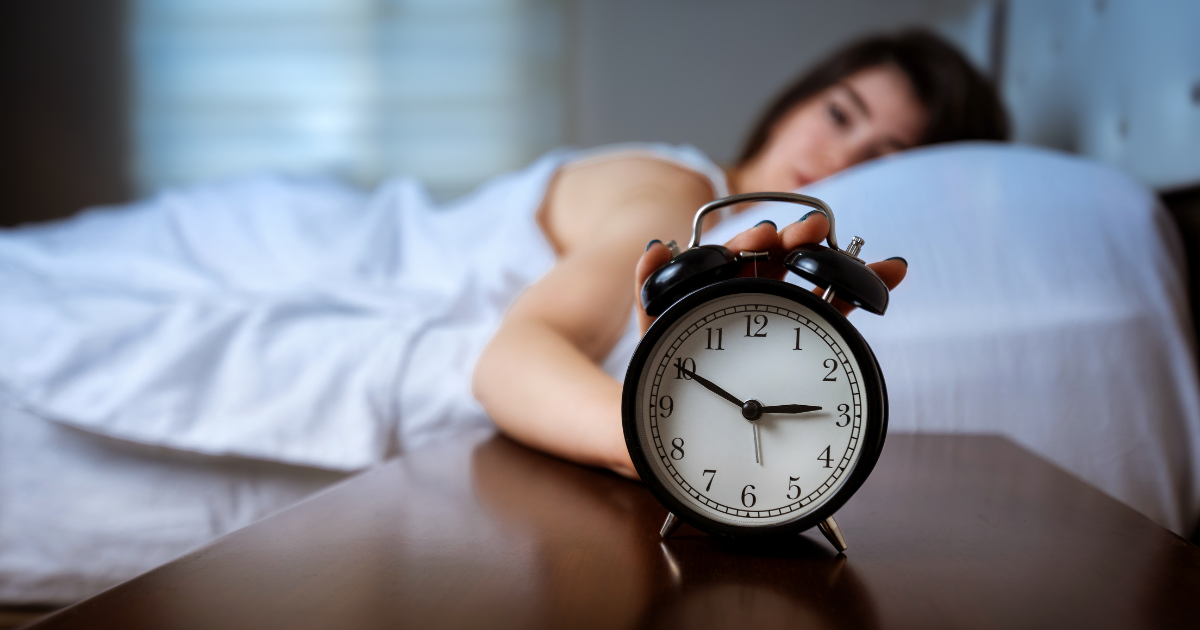This Common Habit Makes Insomnia Worse

Whether it’s acute insomnia (like jet lag) or chronic insomnia, we don’t always have the best habits to manage this sleep disorder. It’s estimated that up to 60 percent of the population has struggled with insomnia at some point, and chronic insomnia is linked to a myriad of health issues ranging from depression to cardiovascular disease.
We know the basics of what can trigger or cause insomnia, such as watching screens in the bedroom, drinking alcohol, and trying to sleep in a bright and noisy room. However, a recent study revealed that there’s a common habit insomniacs have that make the condition even worse: clock-watching.
Technically known as time-monitoring behavior, or TMB, researchers from Indiana University Bloomington say that this frustrates those with insomnia, and the more frustrated we become, the more likely we are to stay awake or reach for sleeping medications. It’s compared to a negative feedback loop according to the research team.
The more you watch the clock, the harder it is to fall asleep, and the more likely you are to check the clock again. The lead author says, “People are concerned that they’re not getting enough sleep, then they start estimating how long it will take them to fall back asleep and when they have to be up.” Few people like math quizzes to begin with, and this one is a doozy.
Clock-Watchers
The team looked at data from nearly 5,000 patients who filled out a sleep questionnaire in Arizona. They answered questions about how severe their insomnia is, how they clock-watch at night, and their use of both Rx and over-the-counter drugs. Mediation analyses were then used to compare variables to one another—in this case, insomnia is the cause, the result is using sleep medication, and watching the clock is the “mediator” in the mix. When it comes to clock-watching, the authors urge, “That is not the sort of activity that’s helpful in facilitating the ability to fall asleep; the more stressed out you are, the harder time you’re going to have falling asleep.”
A strong link was found between insomnia, clock-watching, and medication use. Those who had both insomnia and related psychiatric conditions were more prone to watching the clock (and checking it more often) as well as using more sleep medications. The researchers asked participants about their frustration related to TMB and more details about the clock-watching itself. They wanted to know just how closely TMB was related to medication use. The results? “We found that time monitoring behavior mainly has an effect on sleep medication use because it exacerbates insomnia symptoms.”
TMB isn’t the Only Factor
While TMB was found to be a major contributor in using sleep medications, other factors are also at play. Many things can cause insomnia and is a co-morbidity to a number of other conditions such as depression and anxiety. The researchers urge those with chronic insomnia to undergo cognitive behavior therapy for insomnia, or CBT-I. This can help with the frustration related to TMB, too, all while helping to decrease or avoid the use of medications. Many times, changing your sleep hygiene can dramatically reduce insomnia symptoms.
A lot of people are trying to move away from being dependent on OTC or prescription sleep aids. There are side effects associated with most of them, even melatonin in the long-term has side effects. The team also recommends additional future studies that include larger groups of participants and studies that take place over an extended period. Until then, they recommend removing clocks and/or phones from bedrooms to avoid the temptation of checking. “There’s not any place where watching the clock is particularly helpful,” they say. Of course, if you are using medications to help you sleep, it can be difficult (and even dangerous) to quit cold turkey. Fortunately, there are solutions to help you bridge the gap.
Sip2Sleep® is a truly natural supplement made of just two ingredients: tart cherry extract and Venetron®. The former helps to alleviate inflammation while the latter is a natural anxiety-buster. Together, they can help you safely get the sleep you need and avoid the temptation of checking the time.
Start your better, sleepier journey today by purchasing your first bottle.







